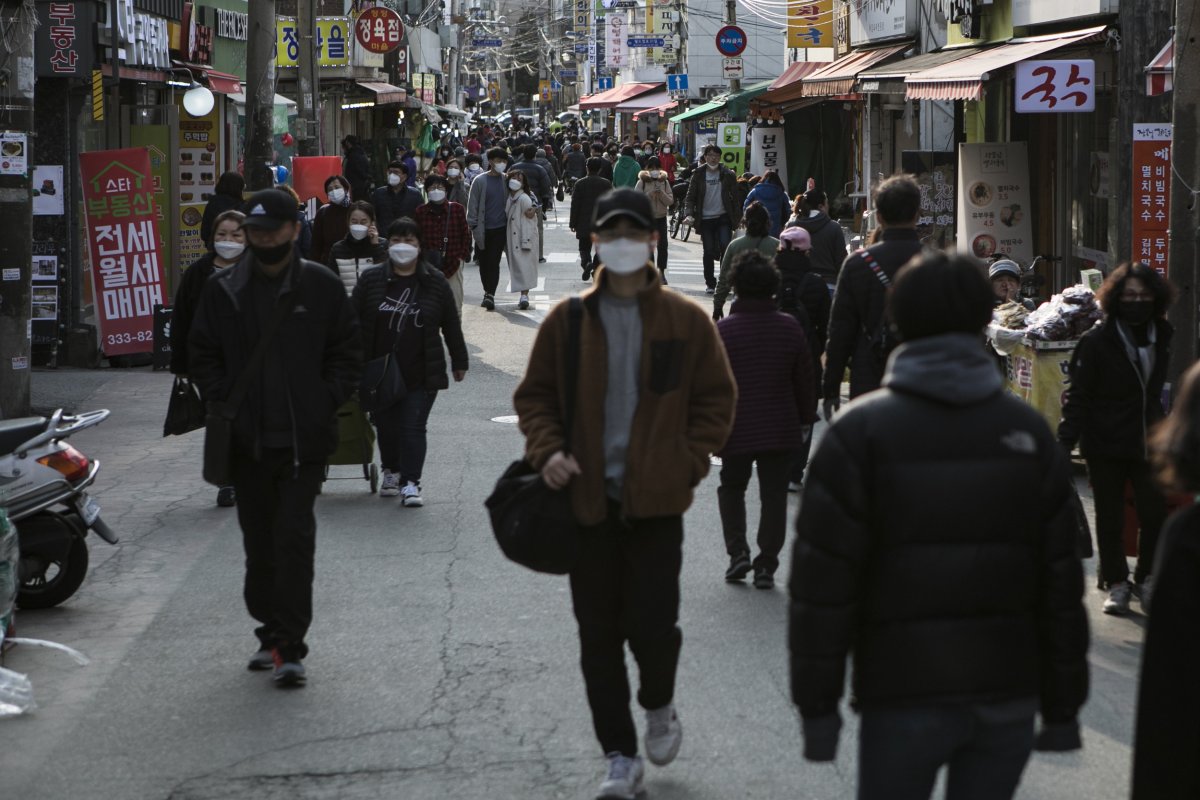Health experts in South Korea are addressing the nation's growing incidence of former coronavirus patients who have retested positive for the disease after having previously recovered. According to Korea Centers for Disease Control and Prevention, figures published Wednesday indicated that 292 people countrywide had tested positive for the respiratory illness since initially contracting it and later testing negative, suggesting conceivable recovery from infection. However, discussing the upward trend in positive retests during a recent news conference, officials from KCDC's clinical committee for emerging disease control said the pattern does not necessarily reflect a reoccurrence of active infection.
Committee head Oh Myoung-don instead attributed positive test results following recovery to "dead," or inactive, virus components still present in patients' cells, multiple outlets based in South Korea reported on Wednesday.
"RNA fragments still can exist in a cell even if the virus is inactivated," Oh said during the conference, according to government-funded media organization Yonhap News Agency. "It is more likely that those who tested positive again picked up virus RNA that has already been inactivated," he continued, going on to explain that the coronavirus' biological interactions with human DNA strands show its lack of ability to "create chronic infections."
Still, concerns over South Korea's growing number of positive retests have circulated throughout April, as the number of second-time diagnoses among "recovered" individuals has steadily risen. Less than two weeks ago, KCDC reported that 163 patients had tested positive for the virus again following recovery and subsequent discharge from isolation. At the time, repeat diagnoses accounted for slightly more than 2 percent of the country's recovered population. On Wednesday, approximately 2.7 percent of previously recovered adults had tested positive for the coronavirus a second time, as well as 3.4 percent of children.

KCDC shared preliminary findings of an investigation into the retests on April 17, saying the average time between a recovered coronavirus patient's discharge and positive test result was roughly 13.5 days, with an overall range of one to 35 days. Of 137 cases studied, KCDC reported that 61 patients showed mild symptoms, 72 were asymptomatic and four were still being explored. The disease control center also said there were no secondary infections identified in any successive cases.
By Sunday, South Korea had confirmed 263 cases of positive test results in formerly recovered coronavirus patients, and KCDC said its investigation remained ongoing.
"Contact tracing on these re-positive cases is also underway to identify possibility of secondary infection," its April 26 report read. "No new case has yet been confirmed that resulted from exposure to the re-positive cases (during the period in which they were re-positive). The contacts are still under monitoring."
As of Wednesday morning, 10,761 coronavirus cases and 246 resulting deaths had been confirmed across South Korea, according to Johns Hopkins University's tracker. Reports from its Department of Health as well as KCDC show less than 15 people have tested positive for the first time each day since April 19.
Uncommon Knowledge
Newsweek is committed to challenging conventional wisdom and finding connections in the search for common ground.
Newsweek is committed to challenging conventional wisdom and finding connections in the search for common ground.
About the writer
To read how Newsweek uses AI as a newsroom tool, Click here.








